Tech Talks Event Examines Libra
One of the most difficult political questions of all is trying to understand money, what it means and where it gets its extraordinary power. Tech Talks, a new ongoing series of technology discussions by Cayman Tech City in partnership with Digital Cayman, recently examined Facebook’s recent Libra announcement.
The discussion was led by Darwin Lo, Co-Founder and Chief Technology Officer of Digital Consulting Group SEZC, a subsidiary of Insights Network who was joined by panel of experts which included Marco Aniballi, Managing Director at Block Blox Strategic SEZC; Logan Golema, Chief Technology Officer at Hercules SEZC; and Wendy Lee, blockchain and tech start up strategist, and former Chief Legal Officer of block.one who has developed the well-known blockchain protocol EOS.IO.
We took a moment to recap with Darwin, Marco and Logan.*
*Unfortunately Wendy was travelling at the time of this post and unable to provide written comments due to time constraints.
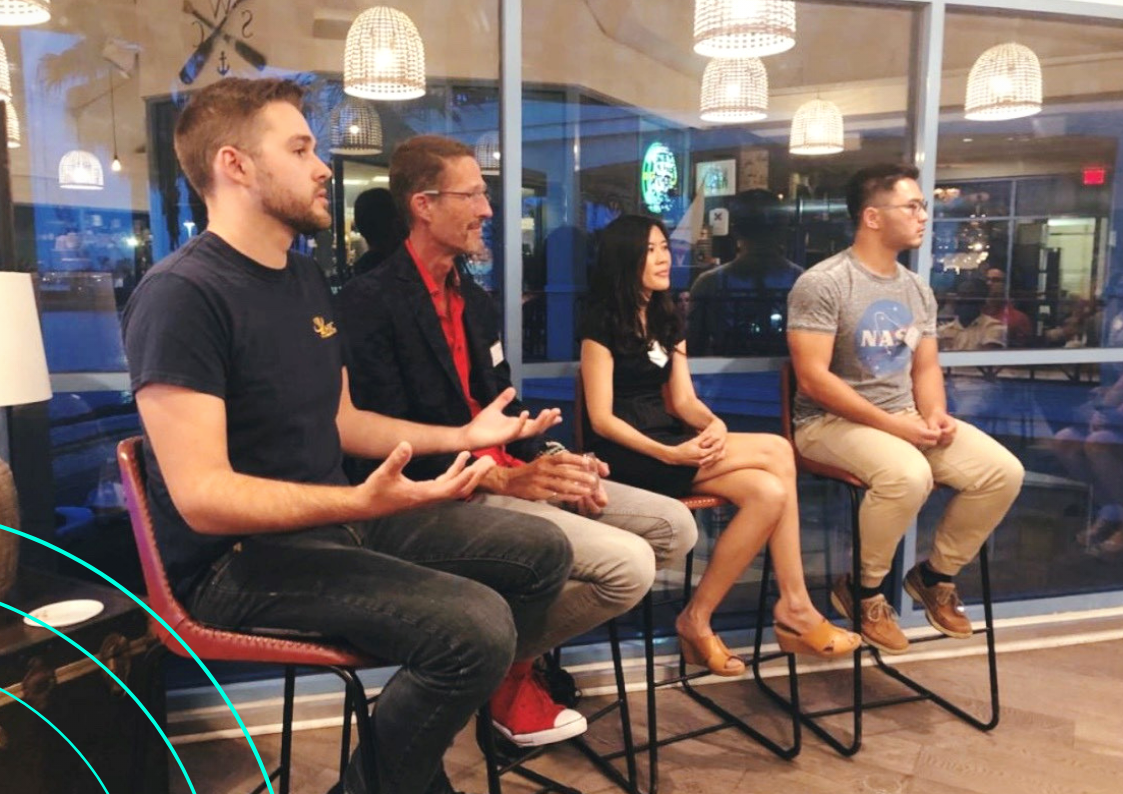 Caption: L-R Logan Golema, Marco Aniballi, Wendy Lee, and Darwin Lo
Caption: L-R Logan Golema, Marco Aniballi, Wendy Lee, and Darwin Lo
CEC: What is Libra and how does it compare to other crypto currencies and to other forms of currency?
DARWIN: Libra is a cryptocurrency. Like other cryptocurrencies, transfers are performed by a blockchain. But unlike other cryptocurrencies, the total quantity of Libra and its value is overseen by a body that is similar to a currency board.
MARCO: Libra’s difference from other crypto-projects is twofold; first, it will be valued against all major world fiat currencies simultaneously and its value in any one currency may fluctuate as the relative values of the underlying fiat currencies change, although collectively its value will be stable; second, it is poised to have billions of users on the first day it is launched, since its partners (Facebook, Visa, Mastercard, Uber, etc.) have massive user bases and the ability to integrate Libra nearly instantly. For the average user, Libra will primarily be a more convenient and much cheaper to use method of exchanging value (once the infrastructure is in place).
CEC: Is Libra real money?
DARWIN: I like the definition of “money” put forth by Paul Graham in his landmark essay, "How to Make Wealth." According to Graham, money is a "medium of exchange." And it can be anything that is rare and portable. Since Libra is backed by existing currencies, it can be used as a medium of exchange from day one. Its portability is provided by a blockchain, and its rarity is ensured by the Libra Reserve.
MARCO: Real money is an interesting concept. It requires you to realize that money is not real; it is an idea. Fortunately, the idea has large social support and that is what gives it value. It started with faith in the institution backing the money and became a collective acceptance that $1 = $1. USD can be said to have a community of many billion “users” who believe in it; therefore, it has value. The same applies to cryptocurrencies; the only real difference is the “social contract” is held by much smaller communities than the USD. If Libra succeeds in integrating itself into the monetary ecology of our planet (at scale) then they may surpass the USD as the MOST valid money. This is the risk the world’s governments are worried about. If a significant percentage of all transactions globally are occurring using Libra, then the underlying Fiat (held in the Libra Bank) doesn’t really have any meaning anymore; Libra would be the de facto global currency.
CEC: Tell us, what’s the Libra Association and should we be worried? What alternate structure, in your opinion, should be considered?
MARCO: Libra Association is the governing body of the Libra Infrastructure. They get to set the rules, and they are responsible for obeying those rules and having the best interests of the infrastructure foremost in their decision making. The current plan is 100 Corporate partners – I believe this is very dangerous and feel that we’d be better off with 1000s of members, of which every national government is one. The more members, the less likely there will be any malfeasance. Additionally, I think all governance decisions should be published on a blockchain as well to ensure that the governing body is held accountable for its actions and decisions. I have 47 more pages of high-level ideas on this. I’ll stop here!
CEC: What does Facebook say it’s doing and what do we think they are really doing? What’s their motivation and business model?
DARWIN: Facebook’s stated intent is to improve, or in many cases even create, access to affordable financial services, that is, to bank the unbanked. Accordingly, they have started up Calibra to offer financial services for holders of Libra. As for their motives, typically there is a mixture of motives that grow and shrink in prominence over time. Here's one. Facebook has always been good at detecting things that pose existential risk to it. For a time, it used a mobile app called Onavo to monitor users' app usage. This was how it knew that WhatsApp was growing in market share and how it knew to purchase it before it posed a grave threat. I think there is a feeling at Facebook that blockchain technology could somehow pose a risk to its business and that, unless they take part in shaping how it unfolds, they will be left behind.
MARCO: I’m not sure that Facebook was necessarily the instigator of the Libra Project; but let’s operate under the assumption that it was Mark Zuckerberg’s idea; They say they are creating a platform to disintermediate the payments business/processes, worldwide. It’s laudable. Given that their technology stack isn’t revolutionary, they aren’t brining anything new to the blockchain world other than the largest community to have ever existed in the space, or ever in general to be unified in such a way. I think it is too early to speculate on a business model. Most of the partners in Libra have been making money in rather new ways for a long time and I suspect there are many opportunities within the Libra world to scrape a bit of profit for the Libra Association without upsetting the user base.
LOGAN: When Facebook announced their entrance into crypto the idea had already been on many minds in the industry for a while. It was less of a surprise and more of a, finally moment. Personally, I believe they wanted to test the waters, goading a response from world leaders. It doesn’t matter what we think they're up to, not really. What will matter is how long it takes them to accomplish their goals and at what cost to the original vision they described. Their motivation? To make money and provide a seamless onboarding experience to users around the planet into crypto. Their business model? Well as a shareholder in Facebook Inc it’s safe to say the continued business model of buying and selling our data will continue in the form of our transactional history.
CEC: How (or how isn’t) Libra/Calibra going to be regulated? In your opinion, what is the best way to regulate something like Libra?
MARCO: If we want the status quo in the world, then Libra will be regulated in every jurisdiction it operates in and will lose much of its appeal; becoming little more than another Payger or Revolut. The optimal method for governance (and regulation) would be to treat the Libra Association as a United Nations style body. Every government has a node, as well as multinational bodies/corporations, and each entity gets one vote and no veto. This will go a long way to removing some of the more sinister abuses of monetary systems that have gone on in the last 30+ years. Additionally, if the chain is public (which it should be) there will be no way for bad actors (social, not technical bad actors) to engage in the system without revealing their activities.
From a privacy perspective, we have already lost/given away much of our privacy as individuals, however the danger here is the fact that while our lives are bared, there are many out there who still have privacy and use it effectively (often to the detriment of others). In my opinion; the world either enforces the return of privacy (unlikely) or enforces a complete lack of privacy for all (also unlikely), anything in between is ripe for exploitation.
CEC: Who’s going to bail out Facebook should it all fail?
MARCO: When a system fails, we should let it fail and learn from it. 2008 is a classic case of what NOT to do. Facebook failing will have no impact (necessarily) on a fully deployed Libra. For Libra (if governance is robust) there is no real way for it to fail. I can only see a reasonable possibility of failure if Libra decides to allow itself to start lending based on fractional reserves. At that point, they have a risk portfolio that could be difficult to manage globally. With all that said; If Libra became the defacto global currency, failure would be nearly impossible with the possible exception of a global EMP taking out all the copies of the blockchain (unlikely).
CEC: What are the main risks for users? What could go wrong?
LOGAN: I feel a lot of the risk won't be at the surface. Fundamentally Facebook and its subsidiary products are pretty solid. Have there been hacks? Sure. Will Facebook be putting a huge target on their back with 2 billion + user's transactional data. Absolutely. But if anything were to go wrong the users would be the last to hear about it, and by that point they will already be thinking of the next attack vector.
CEC: Is the tech going to work?
LOGAN: The testnet works, and Facebook has access to some of the best developers in the world. Just as in our Hercules Platform, Facebook plans to use the React Native stack (which they invented) in their wallet Calibra. This is some of the most well-structured and tested architecture for apps today.
MARCO: All my comments here are supposing that it is possible to build a blockchain that can handle being the global currency ledger. However, this is just not possible today and 5G won’t improve it one bit. We are probably a century away from having an internet that can support a global payment currency blockchain that isn’t in some way compromised (less secure/public/trustless).
CEC: How do you see this playing out and what would you like to see happen? How can we make money work for everyone?
LOGAN: I would like to see Bitcoin or a Gold backed asset token like AnthemGold of their ‘basket of currencies' this would give recognition to existing cryptocurrencies and provide a better experience to those using the Libra.
MARCO: Libra will force governments to take a serious look at their monetary systems and see what impact Libra may have. I don’t see any meaningful deployment of a true blockchain based global stable coin/alternative payment currency for consumers happening within my lifetime. Libra may boost the discussion volume, but I hold no illusions that their software (or the network required to support it) will be scalable anytime soon without there being a significant degradation in the underlying blockchain technology.
DARWIN: Although there is a long way to go, I think the current state of Libra is a solid milestone. It has drummed up a lot of interest in cryptocurrencies and has forced many people to participate in shaping cryptocurrencies’ future, whereas before it was merely a blip on their radar. I’d like to see all stakeholders work together to work on something that sufficiently fulfills all the necessary properties of a currency, not just knock a few of them out of the park while failing to meet others. I hope strong leaders emerge -- we need princes and princesses to help the blind men piece together the entire elephant.
CEC: Is there anything else to add?
LOGAN: After 10 years a huge corporation is accepting crypto. Not just as an outlier but as a prime revenue and business model. Their documents explain a lot as to what their mission is and how they plan to achieve their goals. If you haven’t already, I suggest you take the time to read over them to understand what the world is about to face. A Global Noncentral Bank Monetary System controlled by non-democratically elected corporations.
DARWIN: On a related note, the world is right to distrust Facebook. It doesn’t mean that we can’t work with them, but it does mean that we must be unwilling to accept anything other than the highest levels of transparency and accountability.
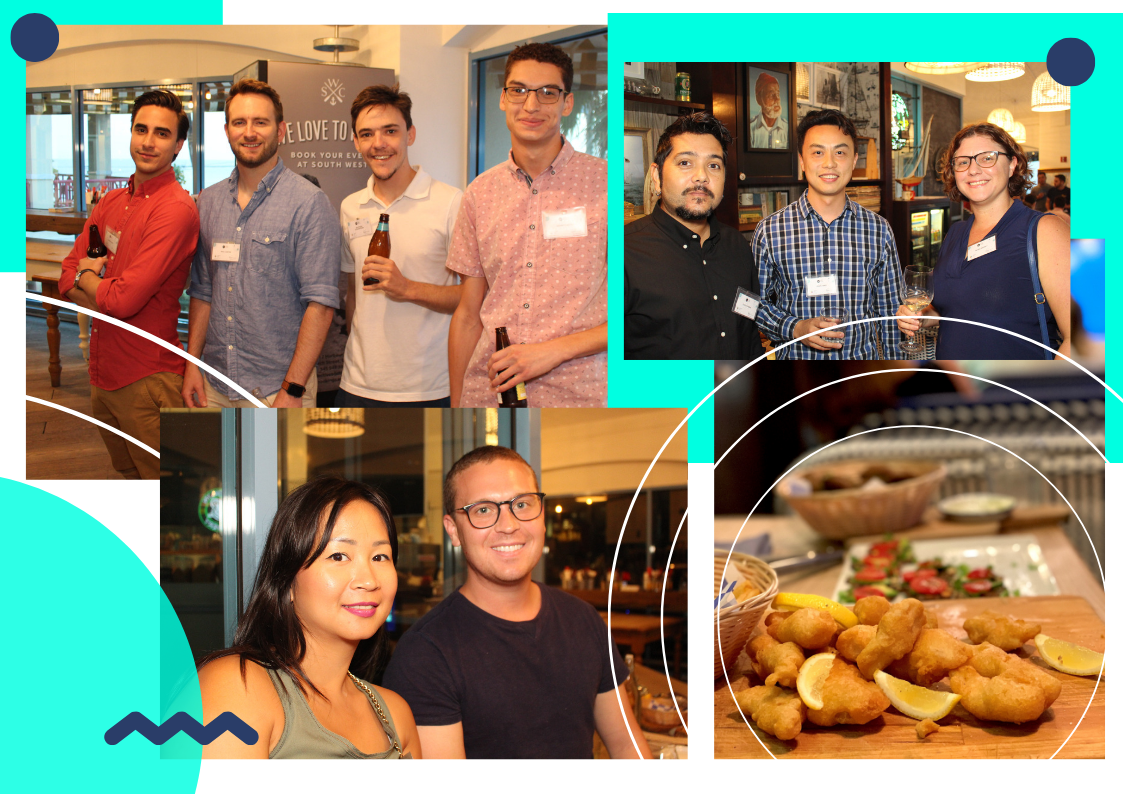
Tech Talks is a live series of technology-focused discussions by Cayman Tech City in partnership with Digital Cayman. Discussions take place on the second Thursday of each month and members of the public who are working within the Cayman Islands’ technology sector are invited to register their interest by emailing innovate@caymanenterprisecity.com.
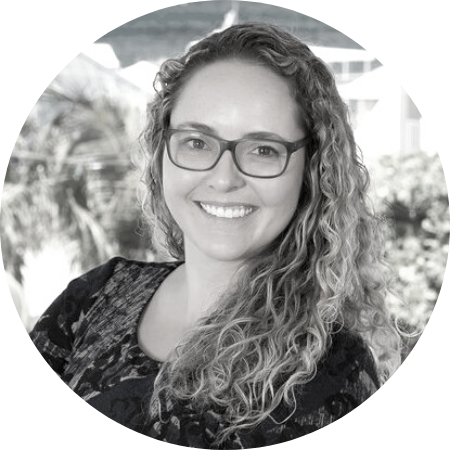

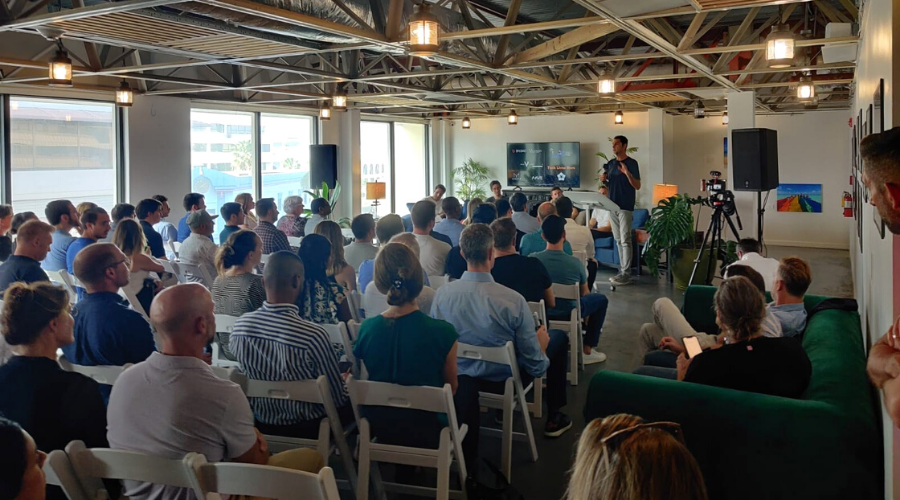
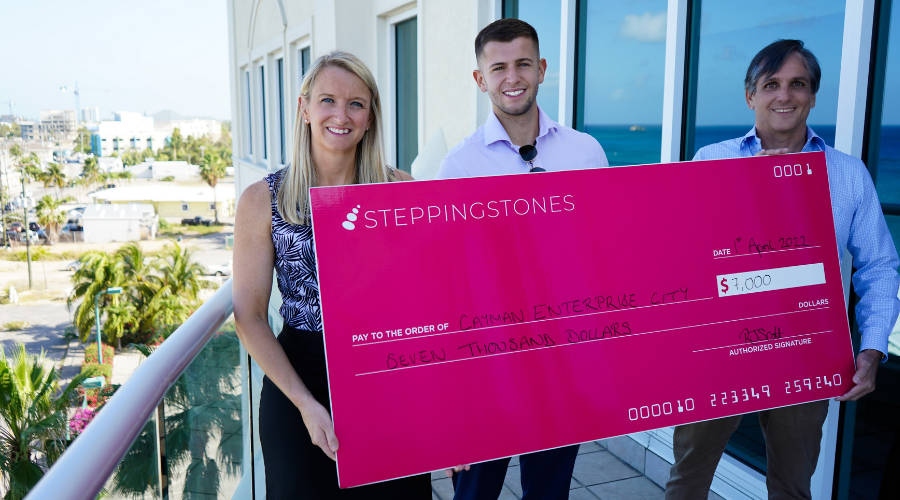
.jpg)
